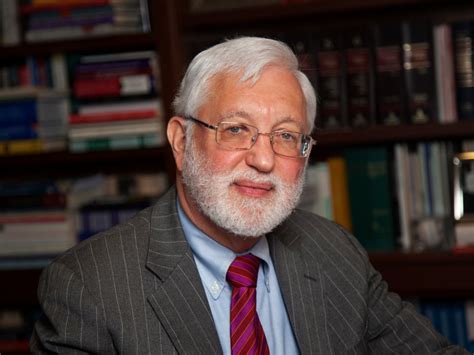A Quote by Michelle Alexander
Prosecutors frequently overcharge, load up charges on individual defendants, knowing that three strikes laws and harsh mandatory minimum sentences will force people to plea bargain and essentially convict themselves because they're terrified of doing a life sentence for a relatively minor crime.
Related Quotes
Mandatory minimum sentences give no discretion to judges about the amount of time that the person should receive once a guilty verdict is rendered. Harsh mandatory minimum sentences for drug offenses were passed by Congress in the 1980s as part of the war on drugs and the "get tough" movement, sentences that have helped to fuel our nation's prison boom and have also greatly aggravated racial disparities, particularly in the application of mandatory minimum sentences for crack cocaine.
In my experience, most federal prosecutors, at every level, are seeking to make a name for themselves, and the best way to do that is by prosecuting some high-level person. While companies that are indicted almost always settle, individual defendants whose careers are at stake will often go to trial.
It's kind of like sentencing. A lot of people say that we have a heavy sentence for this crime and a light sentence for another crime, and what we ought to do is reduce the heavy sentence so it's more in line with the other. Wrong. In most cases we ought to increase the light sentence and make it compatible with the heavy sentence, and be serious about punishment because we are becoming too tolerant as a society, folks, especially of crime, in too many parts of the country.
Some of the folks we see are in for defending themselves against their abusers, or drug charges that, because of the California state prison system, they have mandatory sentencing and life in prison for three counts of simple drug possession, or whatever. I find it not only helpful but, I think, necessary in maintaining my grounding and my perspective. Because music is such an unrealistic job to have. It's a really lucky job to have, but it's also very unrealistic.
If it comes to a question of law, the charges they brought against me - the Espionage Act - is called the quintessential political crime. A political crime, in legal terms, is defined as any crime against a state, as opposed to against an individual. Assassination, for example, is not a political crime because you've killed a person, an individual, and they've been harmed; their family's been harmed. But the state itself, you can't be extradited for harming it.
In response to the advocacy of groups like Mothers Against Drunk Driving, most states adopted tougher laws to punish drunk driving. Numerous states now have some type of mandatory sentencing for this offense - typically two days in jail for a first offense and two to ten days for a second offense. Possession of a tiny amount of crack cocaine, on the other hand, was given a mandatory minimum sentence of five years in prison.
The federal government overrules state laws where state laws permit medicinal marijuana for people dying of cancer. The federal government goes in and arrests these people, put them in prison with mandatory, sometimes life sentences. This war on drugs is totally out of control. If you want to regulate cigarettes and alcohol and drugs, it should be at the state level.



































